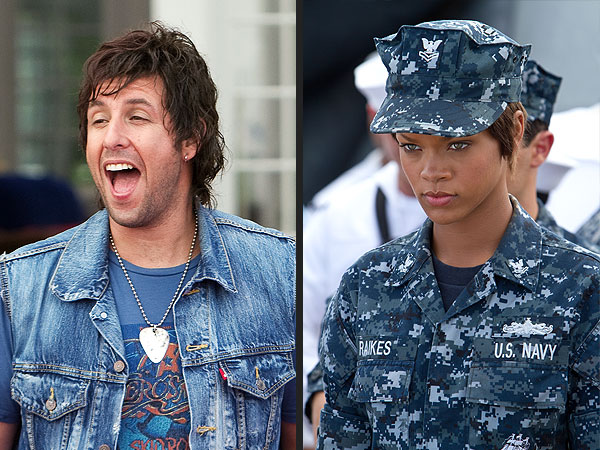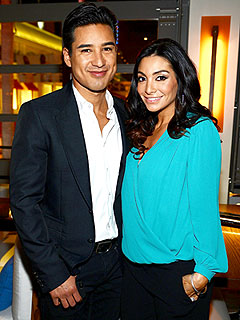The younger boy, Kristopher Shatto, who was born Kirill Kuzmin in Russia, remains in the custody of his adoptive parents, Alan and Laura Shatto, in Gardendale, Tex. His biological mother, Yulia V. Kuzmina, who lost custody of the boys because of alcohol addiction, has also demanded Kirill’s return.
But even as the State Duma, the lower house of Parliament, adopted a resolution calling for Kirill to be brought back to Russia, news outlets here reported that Ms. Kuzmina and her boyfriend had gotten into a drunken brawl and were removed from a train by the police while returning to Gdov, a town near the border with Estonia. They had been in Moscow for a television appearance.
Yevgeny Usovich, the owner of a resort on Lake Peipus where Ms. Kuzmina’s boyfriend, Vladimir Antipenko, worked as a bathhouse attendant, said he had seen the couple after their return but was unable to get details of their travel. “It was useless; they were drunk,” Mr. Usovich said in a telephone interview. “What could I find from them?”
In an interview with the Interfax news agency, Mr. Usovich said employees at the Ustye Beach Resort, where Mr. Antipenko worked, were shocked by the television appearance. “The staff here at the club were outraged as they were watching yesterday’s television program,” Mr. Usovich said. “And all of them said the child must not be handed back over to this couple.”
The older boy, Max Shatto, who was born Maksim Kuzmin, died on Jan. 21, and news of his death set off a huge outcry this week in Russia, which late last year banned adoptions by American citizens. Texas child welfare officials said they had received a report of abuse on the same day that Max died.
On Thursday, Shirley Standefer, chief investigator for the Ector County Medical Examiner’s Office in Texas, said bruises were found on Max’s lower abdomen. An autopsy was conducted on Jan. 23, and it normally takes 8 to 12 weeks to get results, she said. The chief medical examiner will then rule on the cause of death, she added, possibly early next week.
Russia’s child rights commissioner, Pavel A. Astakhov, who had said he would help Ms. Kuzmina regain custody of Kirill, posted a statement on his Web site on Friday seeming to backtrack after the reports of her drunkenness. He said that a decision on restoring parental rights could be made only by a court and that the bigger issue was the way American courts had mishandled abuse cases involving adopted Russian children.
“I repeat once again — the final decision is made by the court only,” Mr. Astakhov said in his statement. “Unfortunately, the debate around the death of little Maksim Kuzmin does not solve the main problem — to restore justice.”
Some Russian officials quickly accused the adoptive mother, Ms. Shatto, of beating the boy to death, but they have since pulled back and said she was guilty of negligence at a minimum.
President Valdimir V. Putin’s spokesman, Dmitri S. Peskov, on Friday urged the public to wait for the forensic results. “To qualify it is a murder or as an accident is not allowed while there is still no evidence,” Mr. Peskov said on Dozhd, a television station. “In this case, I would consider it necessary to temper emotions a bit.”
Earlier in the day, the American ambassador to Russia, Michael A. McFaul, posted a statement on his blog in English and Russian calling Max’s death a “tragedy” but urging that it not be exploited. In the post, Mr. McFaul said he was “troubled” by how some Russian news outlets were portraying the United States and Americans in the context of the Shatto case.
Ms. Shatto has told investigators that she had left the boys playing outside unattended and returned to find Max lying on the ground, unresponsive. He died later that day at a hospital.
In the resolution adopted on Friday, Russian lawmakers urged American officials to regard the issue of adopted Russian children in the United States as an “emergency situation requiring immediate reaction on the part of all government branches of our states.”
Such adoption cases are now covered by a bilateral agreement between the two countries — ratified last year — that sets forth a number of requirements for oversight and cooperation. Along with the adoption ban, which took effect on Jan. 1, the Russian government announced that it would terminate the existing agreement on adoptions on Jan. 1, 2014, following a required one-year notification period.
Mr. Putin called the adoption ban an appropriate retaliation for an American law that seeks to punish Russians accused of violating human rights.
The Russian law was named for Dima Yakovlev, a 21-month-old boy who was adopted from Russia and died of heatstroke in Virginia in July 2008, after being left in a parked car for nine hours by his father, Miles Harrison. Mr. Harrison was acquitted of manslaughter charges by a judge who called the death a tragic accident.
Dozens of American families are still hoping to complete adoptions that were in process when the ban took effect. The issue has become a major source of tension in an increasingly troubled diplomatic relationship. Officials have said that Secretary of State John Kerry and the Russian foreign minister, Sergey V. Lavrov, will discuss the Shatto case among other issues at a meeting next week in Berlin.
Staci Semrad contributed reporting from Lubbock, Tex.











